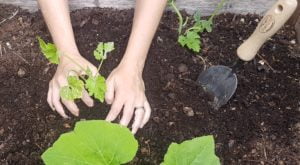Plan for wellbeing
Wellbeing is increasingly on the public and funders’ agenda.
There are specific funds that are targeting projects (e.g. Loneliness Fund), whilst large key grant makers have incorporated wellbeing in their criteria, e.g. NLHF’s mandatory wellbeing outcome “people will have greater wellbeing”. Social prescribing – when health professionals refer patients to support in the community, in order to improve their health and wellbeing – is on the increase. The Covid-19 pandemic has only increased everyone’s awareness of the need to support physical and mental health. It is likely that more financial support will come on stream.
Although your organisation may not talk about “wellbeing”, for so very many not-for-profit organisations, your core business is improving lives through supporting people. This is wellbeing in action – whether through pastoral care in churches or providing fulfilling volunteering opportunities in arts and heritage organisations.
Here are a few things to consider if you want to start thinking about how your organisation helps improve wellbeing, improve your chances of attracting funding and develop your plan for wellbeing:
1. Recognise how your organisation/project already supports wellbeing. Using the 5 factors of wellbeing – Connect, Be active, Take notice, Learn, Give (developed by the New Economics Foundation) – can help you analyse how what you do enhances wellbeing.
2. Identify relevant information that you already collect, such as statistics and case studies that demonstrates greater wellbeing for your service users and volunteers.
3. Consider if you can incorporate new activities, such as gardening, or adapt existing ones, such as coffee mornings to further enhance wellbeing.
4. Be clear on outcomes and how you’ll measure them – measuring wellbeing can be difficult but self-assessment by services users can provide a realistic and sensitive way forward.

Craigmyle can help you understand how to work with and use the wellbeing agenda. We can work with you to help you articulate what you do, develop activities, track social impact, and access funding. We can help you make the most of opportunities, whether that’s researching grant making trusts or helping you describe the potential social return on investment to a potential major donor.
Bernie Morgan, Craigmyle Fundraising Consultant with particular expertise in social investment and social return on investment:
While none of us know what the post-Covid 19 world will look like, it is highly likely that the competition for funds will be more fierce than ever. Additionally, the need for those funds will be greater than ever as the economy is stretched and people’s mental and physical health is affected. Funders of all kinds will be looking for their money to have the most impact. Being able to articulate your Social Return on Investment (SROI) is going to be so important for future fundraising.
If you’re interested in how Craigmyle can help your organisation develop your Plan for Wellbeing, please get in touch.
#covid #wellbeing # charity fundraising advice





